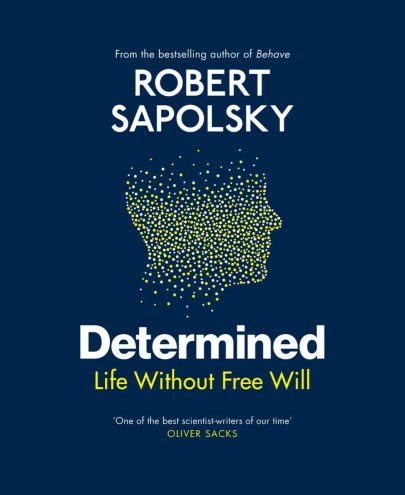May 16, 2016 Books
Someone had put a black hole inside the Aotea Center. There was another black hole next to it. They were making booming sounds as they orbited each other. There is a part of my brain, because I have just spent the weekend seeing crazy connections everywhere, that wants to wrestle these black holes into a metaphor for the Topp twins, who are three down on my list of Auckland Writers Festival events I wish I’d got to. That would only work if black holes were infinite sources of energy. Apparently this may be the case. The black holes were up on the rear screen of the ASB Theatre stage, doing their booming dance because Janna Levin told them to. She was explaining how these relict star fragments
1) came to exist
2) came to generate gravitational waves
3) were predicted to do so by Einstein, who did not believe black holes could actually exist, but was pretty sure about gravitational waves, though he changed his mind on the subject a lot
4) were detected disrupting the fabric of spacetime, a phrase I use in blithe ignorance of the brainbending mathematics required to render it meaningful, by two billion-dollar, four-mile tunnels full of vacuum, built by a small army of scientists under the direction of a man who was ridiculed for years for thinking a gravitational wave detector was in any way a good idea. We saw a slide of a nuclear testing facility security car attempting and failing to drive through the side of one of these tunnels, which it had failed to notice was obstructing its path through a large chunk of desert. “The driver only broke his arm, because he didn’t manage to breach the vacuum.” If he had he would have killed himself, and also a fifty-year project. “We had a bunch of Louisiana hunters try to shoot holes in the other tunnel. One of my colleagues said, well, that’s a car crash and a shooting. All we need is a hamburger event and we’ve got America”.
It was like a nineteenth century popular science talk. These were a huge deal…People gathering in halls to have their minds blown by secular saints has a long history.
Janna Levin explaining gravity was the final event of my Writers Festival. She spent her hour alone on the stage, walking back and forth, clicking on the image projector remote, which misbehaved from time to time: it was like a really good university lecture. Well, Levin is a really good university lecturer. But there were no equations or diagrams and I understood most of it, so no, not university physics: what this was like was a nineteenth century popular science talk. These were a huge deal. Science in our modern sense was just hitting its teenage growth spurt, and the public could not get enough of it; if you had a discovery and a speaking voice you could fill any room. Levin’s session was very unlike the rest of the festival, but it was also a deep call-back to one ancestor of the whole festival project. People gathering in halls to have their minds blown by secular saints has a long history.
Above: Janna Levin’s 2015 TED Talk.
My last day at the festival began with another woman walking back and forth alone on a stage. Not quite true; it began with the Topps, who were at the signing table when I rolled in. Funny story: I skipped Gloria Steinem the previous night in order to get one of these blog posts written, and thirty minutes after I made it home to my keyboard a car took out a power pole just down the road and the lights went off for four hours. Yet another in life’s endless stream of carpe diem lessons; should have gone to Steinem.
So I got to bed at 5.30AM in the end, and had very odd dreams for two hours, and then it was festival day three. When I saw the Topps in their matching waistcoats signing for bouncy six and seven-year-olds I wanted to go hug them. I almost did. This is partly because they’re people any sane New Zealander should want to hug, but mostly because I was not a sane New Zealander just then. Combine very tired and very overstimulated and what you get is functionally indistinguishable from very drunk. If I had met the wrong set of circumstances I would have ended up naked in an Aotea Centre stairwell singing love songs to my cat. By happy chance, what I met instead was Jeanette Winterson and Emma Sky.
I had planned to start day three with Xu Zhiyuan, billed as “the most important Chinese intellectual of his generation”. People told me later he was excellent. One of these people was Helene Wong, who was meeting him that afternoon because he wanted to ask her about the Chinese Otago gold miners of the 1860s. He’s planning to write about them apparently.
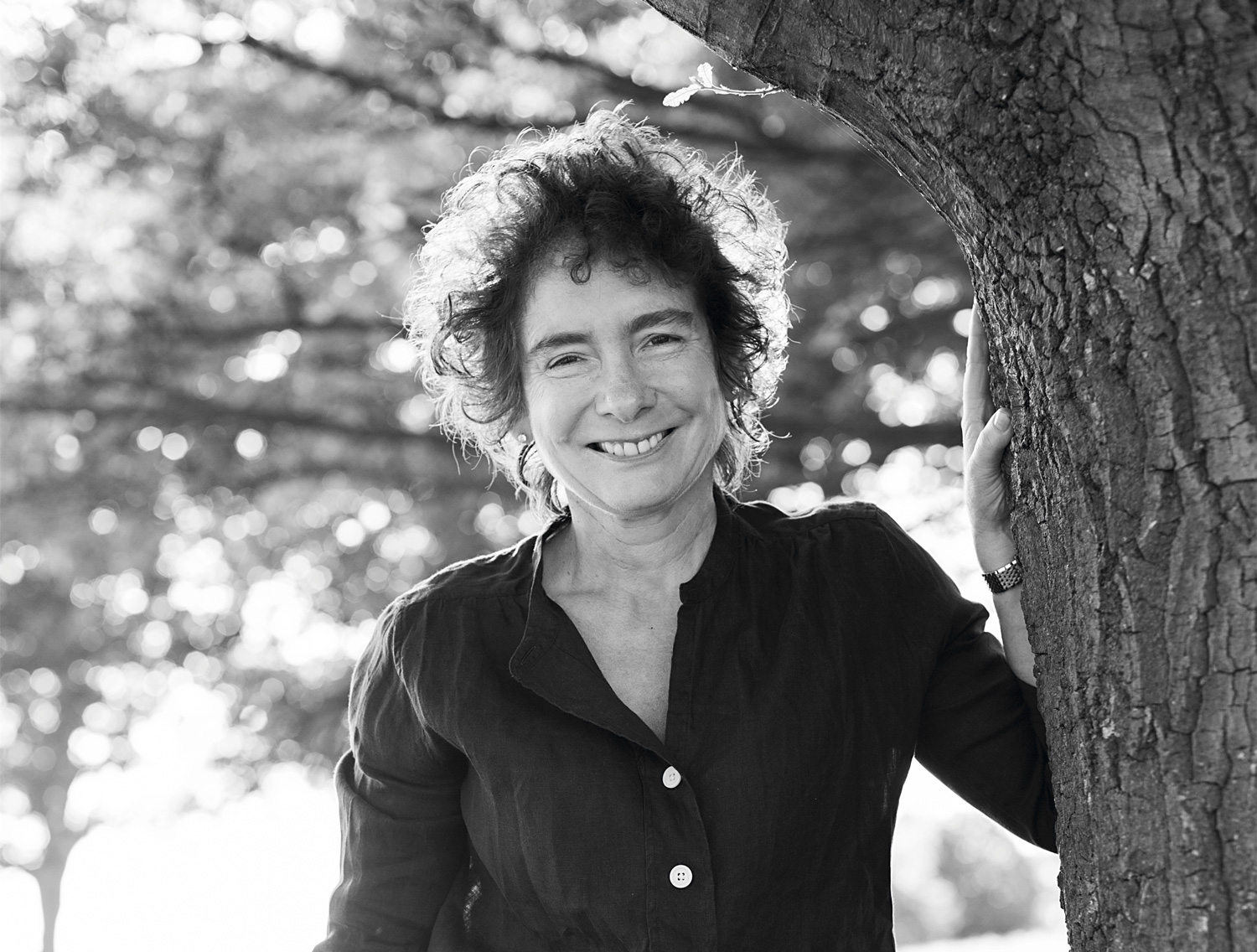
I had enough self-awareness to know I was not going to make it through a social policy discussion, so I went to the Jeanette Winterson session that was running at the same time. She’ll wake me up, I thought. A good analogy would be going to Niagara falls because you want a cup of water. Winterson radiates energy the way the sun radiates photons: inexaustibly, blazingly, don’t stand too close. At most of these sessions the house lights go down and two people walk on stage, there’s applause, they sit down, one introduces the other, there’s a turn-off-your-phones request, there’s a description of the running order…at this one the lights went down and two loud male voices came over the sound system. “My wife’s a hobby-horse, deserves a name as rank as any flax-wench…” A small figure walked on and stood quietly center-stage while the men ranted at each other. She was holding a book and she was quite impassive. One of the men was doing most of the talking. He went on and on. “Is whispering nothing? Is leaning cheek to cheek? Is meeting noses? Is this nothing? Why then the world and all that’s in it is nothing. The covering sky is nothing, Bohemia nothing, my wife is nothing, nor nothing have these nothings, if this be nothing.”
“Nothing”, said Winterson, seamless continuation. “That’s the key word of The Winter’s Tale. Nothing happens, it’s all in one man’s head, and then everything happens, because he makes everything up. Out of nothing. It’s a post-Freudian play 300 years before Freud…”
You could go a long way and not find a better hour’s lecture on Shakespeare than the one Winterson gave in the next five minutes.
You could go a long way and not find a better hour’s lecture on Shakespeare than the one Winterson gave in the next five minutes. As I said yesterday when I tried uselessly to convey what it was like being in the room for her session with Susie Orbach, she talks so fast that coherence should not be possible, and so coherently that speed should only be possible for a few seconds at a time, whereas she never pauses. She shouldn’t have the time to breathe, never mind make sense. (I didn’t say that yesterday. I was trying to.) She talked about what it means that The Winter’s Tale is a late play, about how it relates to the other plays, about women in Shakespeare, about fathers and daughter in Shakespeare, about the Elizabethan lifespan and what it might have meant for Elizabethan psychology, about the business side of the Elizabethan theatre and how Shakespeare made a living, “nothing wrong with that, why not die rich if you can, you’re going to die anyway”. She talked about what this play had meant for her ever since she first read it. “The tale of a lost child who’s found again. I was a lost child of course.”
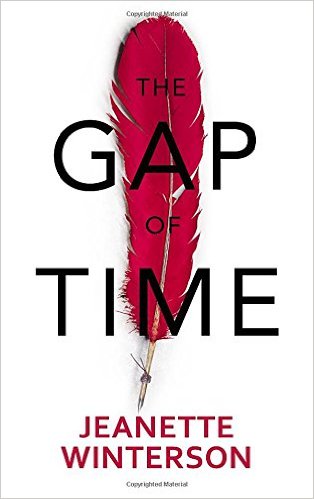
She talked about her new novel, The Gap of Time, which is a recasting of The Winter’s Tale in contemporary New Orleans. Then she read from the book. I ran out to get a copy of it after the session, and I was too slow, they’d all sold. The odd thing is that I have very little idea whether it’s likely to be a good book. A strong reading can add so much that you can’t tell how much would have been there without it.
This was not a book discussion, this was a one woman theatre show about a book. I’ve actually never seen anything like it.
This was an extraordinary reading. I remember when I was 15 we all had to give an oral book review, including a reading. I read from The Lord of the Rings. (I was that guy; you can’t really imagine how much I was that guy). I did Boromir trying to steal the ring from Frodo. “Curse all halflings to death and darkness!” It’s a Nordic warrior completely losing his shit; it’s an earthquake. So I did it that way. “That was a little dramatic, Larsen”, said our teacher, after people had regained consciousness. Winterson was a little dramatic, only she was also good. Plus she had sound effects. There was rain and thunder, a screeching car, sirens… they phased in and out seamlessly. That’s the second time I’ve used that word. This was not a book discussion, this was a one woman theatre show about a book. I’ve actually never seen anything like it.
Then we had the book discussion: Q&A time, and I made it to the mike first. (I may have carefully avoided mentioning that I’ve asked questions at far too many of these sessions.) I asked her how she found the courage to rewrite Shakespeare, and how she found the technique. Here is an incomplete transcript of a very small portion of what she said in reply. “Cloudy language, fuzzy language; they stop you telling the truth. Not the one sole truth – not my way or the highway – the truth of what you see, the reality of where you are, the complexity and the fullness of it.”
“Shakespeare’s vocabulary is the clue. We want to expand the conversation, not chop the world down into smaller pieces. If you only have a few words to draw on you have to shrink your thought to match, and then you’re in trouble, aren’t you? You can’t express what’s in your head, you end up putting a bottle through a window and they lock you up for it, which they are very happy to do, the volcano of the self erupts in violence instead of in words and you lose your freedom because you’re a poor kid from the ghetto and you haven’t been taught the right words…”
I have never been so answered. That’s a tiny fraction. It made more sense in context, but the context was vastly beyond the reach of my note-taking. Shakespearian eloquence as a byproduct of paying attention to the full complexity of the world and digging all the way into the resources of the language to articulate it. When she finished, she added, “Does that answer your question?” The house came down. Then she answered more questions. It seems reductive and distracting to mention that she was raised by an extreme evangelical; but you kind of have to mention it. The crazy thing about this session is that Winterson was not the most exceptional person I encountered on day three.
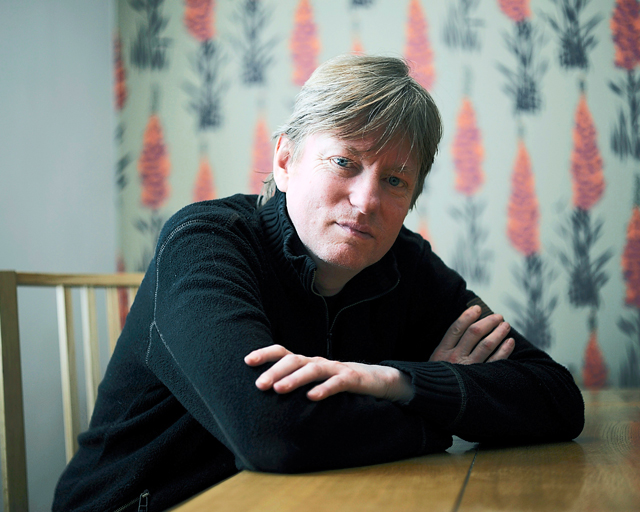
Michel Faber is not that person either, though he would stand out in any average crowd. Or rather he wouldn’t. I doubt he would be in the crowd in the first place, but if he was, the things about him that are strange and singular would be easy to overlook. He is going to be hard to describe. (Cloudy language, fuzzy language, etc.) He was my next session, and again, I was going to go to someone else (Jean-Christophe Rufin sounded really interesting, and sure enough, my son tells me, he was) but too many people told me too many things about Faber. The things did not seem to add up to one person. This also happens when you read his books, I gather; they’re all very good but they’re not all from one point on any psychological map you can construct. I will be finding out about this shortly.
Faber actually annoyed me quite a bit to begin with. He’s very quiet. He’s a few years older than I am but looks a few years younger; he has very small hands and a slight elfin look, and he speaks evenly and as if he weren’t talking about the death of his wife, even though, as I slowly realised, he always is. Partway through the session a door to the rear of the stage opened, which does not happen in these events, and a festival volunteer slipped through, walked over to Faber, and put a pair of red leather boots down beside his chair. He nodded acknowledgement absently and went on with what he was saying. It was a good quarter-hour before he told us the boots were Eva Faber’s. She died of cancer two years ago. “I’ve been taking them to parts of the world she never got to visit. She would have been very uncomfortable on stage, but to be brutally frank about this, if I left them in the audience the lights might come up and they’d be gone, and I would not be a happy bunny.”
“Don’t worry”, said Paula Morris, who was chairing, “you’re not in Australia now”. Faber roared with delight.
Those words were all spoken as I’ve transcribed them; the difficulty is to give you their impact. “Happy bunny” is a phrase that can hit the ear any number of ways, most of them not great, and on the spectrum from beautiful/moving to eccentric/ghoulish, the thing with the boots could fall anywhere. Then add in “I don’t trust you with my wife’s boots”. I mean why would you, a crowd is a crowd, but it was striking how Faber could say this simply as a true thing, being said because time spent in circumlocution is time wasted. The rare dip out of the formal register for “happy bunny”, and his honest surprise and pleasure at Morris’ Australian jab – he grew up there, though he was born in the Netherlands – crystalised into a sense that he’s a highly intelligent person who lives deep in his own head and loves it when people pull him, briefly, out of it. This was around the time I slid from finding him borderline obnoxious to thinking he’s someone I would like to know. I don’t necessarily think that of most people I admire; and I did end up admiring him.
If you know me, you will understand that this is the point where I considered hurling my chair at him. (So yeah, “borderline obnoxious” was understatement.)
The Book of Strange New Things, Faber’s latest and he thinks probably last novel, is about a Christian missionary to an alien world. The missionary has had to leave his wife behind on a collapsingly dystopian Earth. The science fiction furniture of this story, he assured us early on, was just there to do a few specific and necessary jobs, this was a serious literary work. If you know me, you will understand that this is the point where I considered hurling my chair at him. (So yeah, “borderline obnoxious” was understatement.)
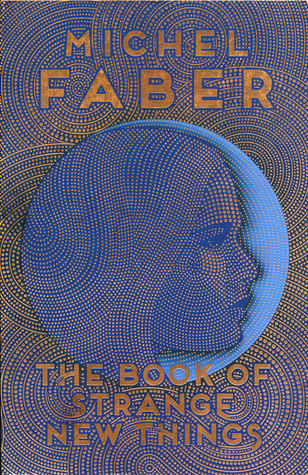
He read from the book, and the beauty and concrete reality of his aliens and his missionary, and the lovely quiet attention he gave the language – the rule that most first-rate reading voices are relatively restrained ones is one of several hundred that Jeanette Winterson manages to break – began to convince me that he was not just another reflexive lit-fic snob. Then he mentioned his love, as a child and still today, for the comics of Jack Kirby. Then he said, “There is actually nothing worse than a really dull work of literary fiction…” Then he talked about his wife’s boots, and then he read some of the poems he’s written about her death. I would tell most people, including most good writers, to write things like this for themselves, not for the world. (I wouldn’t tell any grieving person that, for god’s sake shut that man-who-knows voice up; I’d think it though.) These were hard as bone and they were beautiful.
I managed to get a copy of The Book of Strange New Things. I don’t know if it was the last one in the building, but it was the last one on the table.
Emma Sky. I cannot believe that in-between a session about taking God to aliens and a session about finding the whisper-voice of ancient black holes, I went to a session with someone called Emma Sky. I was completely unprepared for her.
I didn’t take a great many notes at this session. My gob was busy being smacked, it’s just distracting. The first note I did take says, “Simon!” I’d forgotten Simon Wilson was the chair. Necessary disclosure: Simon is Metro‘s contributing editor, i.e. he is a power at the magazine hosting this blog. That is going to make this slightly awkward, but ask anyone else who was there. He was really good. The festival handed him one of their plum jobs, which is like handing someone a little gun with a single bullet and the note, “If you screw this up, please use on self”.
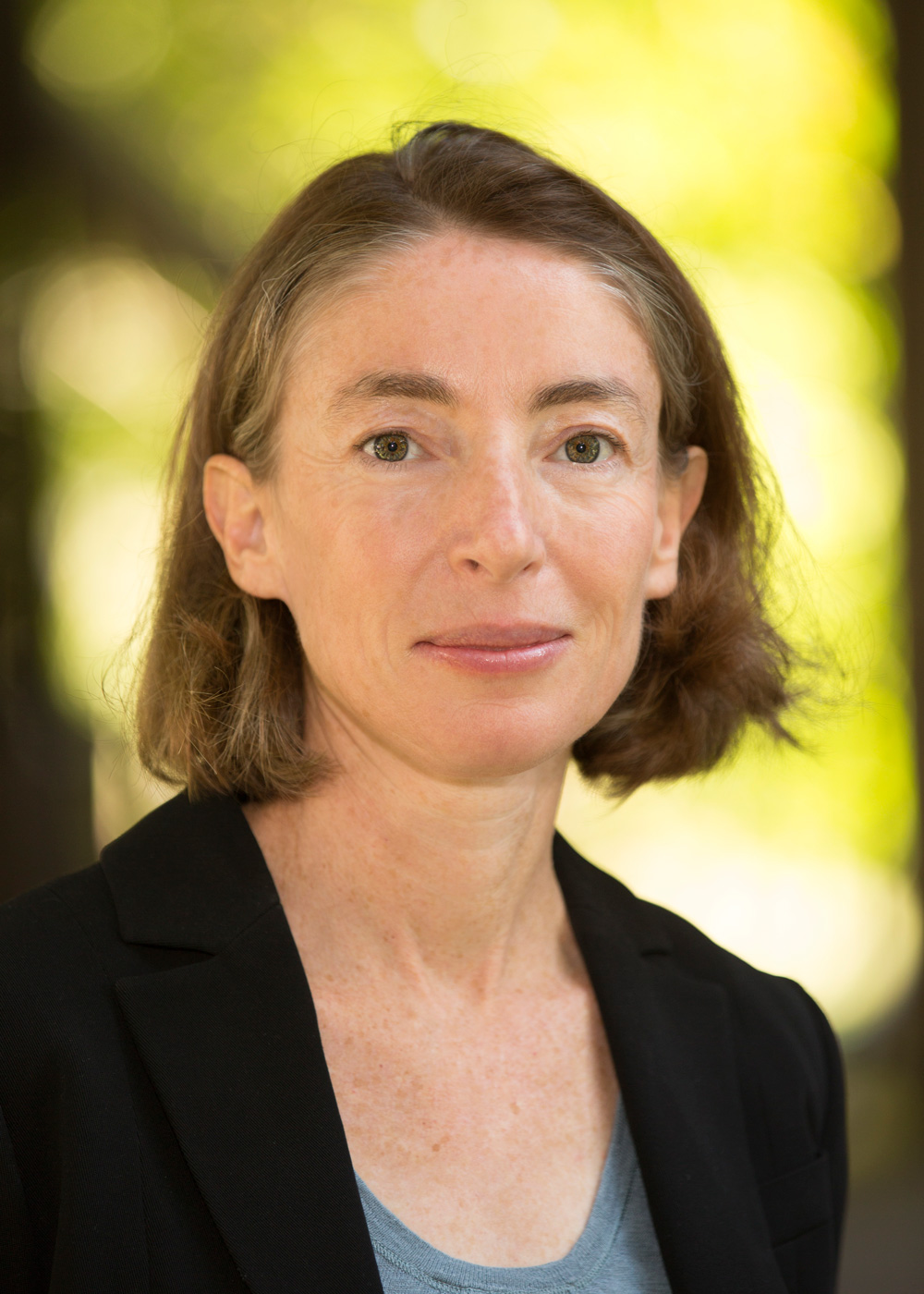
I was not going to write about how neatly he dodged that bullet, because it looks like nepotism, and anyway I haven’t written about many of the chairs – Paula Morris was really good with Michel Faber, I feel bad now for not saying it, there, it’s said – but he was very present in the session, he leaned in a lot and did more talking than a lot of chairs do, and that was part of what gave the session its character, no way round it. Leaning in and talking a lot, any Metro person will tell you, is the only way Simon knows how to be, or at least the only way he knows how to be happy. He should have been very happy here, because Emma Sky was an interviewer’s dream.
Or possibly she was my dream. I did say I was tired. I may have made this whole session up in my head. I still can’t quite believe Emma Sky is real.
“I realised Iraqis were taking my role quite seriously” – this is the next thing I wrote down – “because insurgents tried to assassinate me in my first week. I went to the army and said, it’s all quite embarrassing, but my house has just been blown up. I wondered if you might have a spare tent on an airfield anywhere. And that’s how I met the US military.”
Sky is an NGO humanitarian volunteer type person. She went from school – okay, from Oxford, she’s also very British, and, in a very unassuming sort of way, socially rather top drawer – to volunteering on a kibbutz in Israel, where she became very interested in Israeli/Palestinian relations. (“The Middle East is full of wonderful people and horrible regimes”, she said later in the session. “I do not see the region sorting itself out in my lifetime”. She’s maybe 40-something. And, with regard to the loss of a viable two state solution through the continuing expansion of settlements in Palestinian land, “It’s as though Israel is on a slow path to suicide, assisted by the US. It can’t be both democratic and Jewish as a single state.” )
“It was very embarrassing. I’d never even run an English village. Now I was supposed to be running part of someone else’s country”. This was the point where her house was blown up.
After the 2003 invasion of Iraq, she went there to volunteer in the nation-building process. No one knew quite what to do with her, though she had been specifically asked to come by the British government, and she was sent from place to place until it occurred to someone to put her in charge of governing a province. “It was very embarrassing. I’d never even run an English village. Now I was supposed to be running part of someone else’s country”. This was the point where her house was blown up.
I am not going to be able to give you an adequate account of how, exactly, Sky went from taking temporary refuge on an army base to being the political advisor of a US general. Apart from being a complex story, it’s a story which depends for its meaning on the sense you get when Sky is in the room. She does not have a strong presence, that’s entirely the wrong word; she has a distinct one. Listen to her for three minutes, and you will understand that she’s the last person in the world who would ever expect to be professionally advising an army general, let alone an American army general in the middle of a high stakes and badly botched occupation. She’s a soft-spoken liberal-minded humanitarian with an iron spine and a wicked sense of humour and the wrong set of principles for the job. If you assume the job is to play military yes-woman and enabler, which it wasn’t. “All the leadership books tell you to surround yourself with people not like you, and no one, no one does that, they all hire mini-me’s. But he wasn’t looking for a mini-me. He wanted someone who’d tell him when he was about to screw something up”.
So she ended up in the room when all sorts of things were being discussed and decided. She met Obama. She tried desperately to argue Joe Biden out of ramming through continued American support of Iraqi prime minister Nouri Maliki after he lost a fairly-conducted election, and failed; Biden, who Sky says is a very nice man if he isn’t trying to run your occupation, was quite sure he knew what he was doing. What he was actually doing was creating the preconditions for the rise of Islamic State. Sky got a job teaching at Yale, which will not, Simon suggested, be where her story ends. She agreed. Perhaps special advisor to Putin, suggested Simon? There’s a man who needs a truth teller in the room. He had managed to say something she’d never heard before. “Mr President, you’re so strong, you’re so athletic, you’re so handsome”, she came back with, after a brief look of hilarious bogglement. “Have you considered not bombing Ukraine this week…?”
I raced for the book stand afterwards. I knew her book would sell out. I went to the bookstand downstairs, I went to the one upstairs, I went everywhere. No copies to be had. I still can’t swear Emma Sky actually exists.
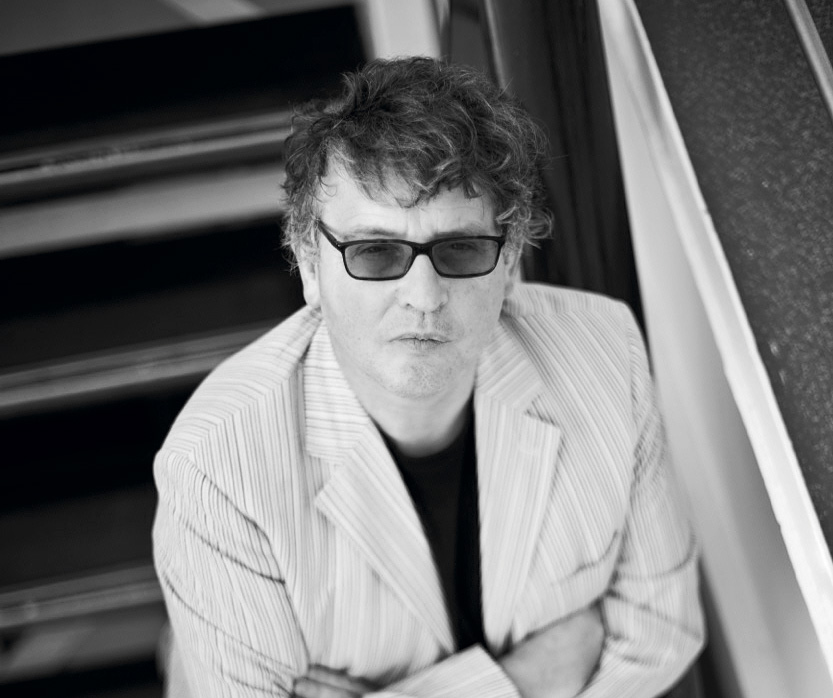
There was one more session before Janna Levin. I was flagging badly now. I don’t have a lot I want to say about this intervening session, despite having talked myself up the other day as the man who will go for the jugular when a festival gets something wrong. This one wasn’t really anyone’s fault; or rather it was, but in a weirdly heroic kind of way. Paul Muldoon, poet and poetry editor, god among men – I’ve heard him speak before, he’s quietly outrageous in a very Irish way – was meant to be on stage with Bill Manhire in the chair. Bill Manhire was ill, so C.K. Stead had stepped in at the last minute. He was so very much the wrong man for the job, but he was so very clearly stepping up at need and doing his best under pressure that it seems cruel to go after him. I feel cruel saying even this much. He missed a good fraction of what Muldoon said to him, he kept forgetting he was wearing a throat mike and going to scratch his chin, and kept not noticing that this was detonating little bombs through the sound system, and at question time he had no clue that it was his job to step in when one very nice young chap popped up and failed to stop talking, and talking, and talking. Muldoon was still rather magnificent. “He’s done something to my brain”, my son said hours later. “I can’t work out what. I’m thinking differently”.
And so to the black holes and the universe at large.
There is an odd thing that happens at the end of literary festivals. You walk off a cliff. I’ve found this time and again. Whatever my last session is, there’s a lack of closure as I walk out of it. I get habituated to the and-now-for-our-next-mind-trip flow of it all, and then the flow stops. I suppose that’s why I like coming home and writing this blog, though there’s also the detail that they pay me and give me a media pass. See you next year.
Read more:



